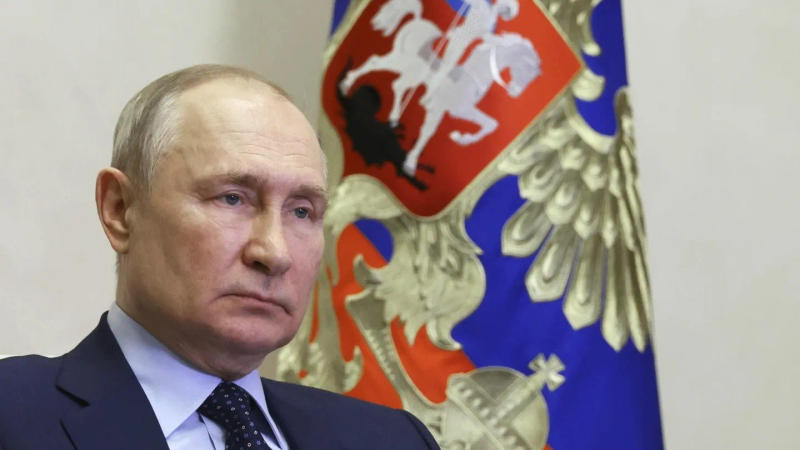Published 07:11 IST, November 23rd 2023
At G20 virtual summit, Putin blames large countries for global economic stress
The stress in the global economy is associated with the actions of other major countries and not with Russia and its attempts to obtain "justice" in Ukraine, President Vladimir Putin said on Wednesday.

The stress in the global economy is associated with the actions of other major countries and not with Russia and its attempts to obtain "justice" in Ukraine, President Vladimir Putin said on Wednesday.
“The great stress experienced by the global economy is the direct consequence of the ill-considered macroeconomic policy of certain states,” Putin said while virtually addressing the G20 meeting hosted by India.
Putin had skipped the in-person G20 summit in New Delhi in September, saying he had to focus on the "special military operation" in Ukraine. Russia’s invasion of Ukraine in February 2022 disrupted the global supply chains, threatened food security, and skyrocketed fuel prices.
“These actions were justified by the need to fight the pandemic, among other reasons. Trillions of dollars and euros injected into the economy and the banking system have triggered a surge in global inflation and a rapid increase in food and energy prices,” Putin said.
“This underlies the events that I mentioned above. It is not our actions, not our attempts to restore justice in Ukraine. No. It is the actions of the world's largest economies. As a result, we saw an increase in key interest rates. The poorest countries were hardest hit by that, of course,” he said.
He also criticised how unlawful trade restrictions and the climate agenda pursued by some countries in order “to improve their own competitiveness,” continue to have a negative impact.
“In order to eliminate competitors and to gain advantages, dishonest methods of competition are used, including the destruction of transport and logistics chains and international payment arrangements, and even acts of state terrorism,” he said and cited the example of the explosion at the Nord Stream gas pipeline under the Baltic Sea.
Commenting on how the situation in the global economy and the situation in the world, in general, requires “collective decisions based on consensus” that would reflect the vast majority of the global community, of the developed and of the developing countries, Putin said, “The world is going through a radical transformation. New global and economic centres are emerging.” “A big share of the trade activity is shifting to the Asian, African and Latin American regions where the vast majority of the world's population is living,” he observed.
Earlier, Indian Prime Minister Narendra Modi had referred to the inclusion of the African Union into the G20 at the September Summit in New Delhi and asserted that the G20 has increased the confidence in “multilateralism and global governance reforms have been given a direction.” Putin stressed that the role of developing economies should also be increased in international financial institutions, “including the International Monetary Fund and the World Bank, use resources of these organizations in the interests of development of countries and regions that are really in need, and not for opportunistic political goals.” “We are ready to join efforts for solving these current tasks within the framework of the Group of Twenty and in other international institutions, including the BRICS association, whose weight and influence are obviously growing, particularly considering its expansion process,” the Russian President added.
Informing the virtual gathering, Putin said that first ships with complimentary Russian grain have been sent to Africa and said, “Russia honours all its commitments in this sphere [food security] and remains one of the top food exporters.”
Updated 07:11 IST, November 23rd 2023




